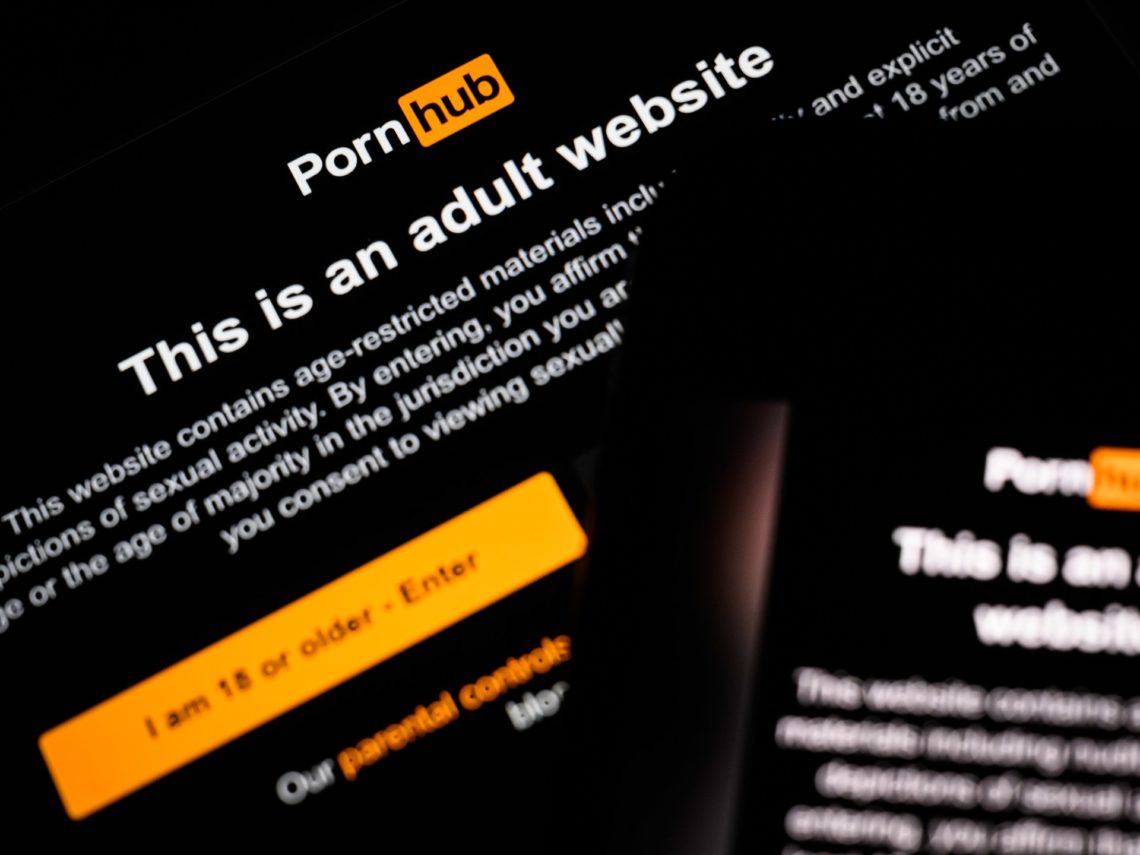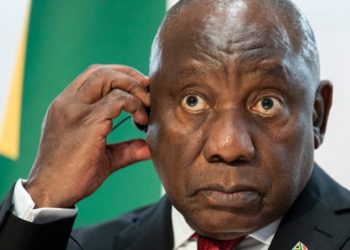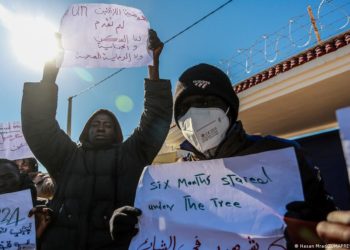The United Kingdom’s Online Safety Act was meant to keep children safe. Instead, it is keeping the public uninformed. Within days of the law taking effect in late July 2025, X (formerly Twitter) started hiding videos of Israel’s atrocities in Gaza from UK timelines behind content warnings and age barriers. A law sold as safeguarding has become one of the most effective censorship tools Britain has ever built. What is unfolding is no accident. It is the result of legislation that weaponises child-protection rhetoric to normalise censorship, identity verification and online surveillance.
The roots of Britain’s online censorship crisis go back almost a decade, to MindGeek, now rebranded as Aylo, the scandal-ridden company behind Pornhub. This tax-dodging, exploitative porn empire worked closely with the UK government to develop an age-verification system called AgeID, a plan that would have effectively handed Aylo a monopoly over legal adult content by making smaller competitors pay or perish. Public backlash killed AgeID in 2019, but the idea survived. Once one democracy entertained the notion that access to online content should be gated by identity checks, the precedent was set. The Digital Economy Act 2017 laid the groundwork, and the Online Safety Act 2023 made it law. Today, several European Union states, including France and Germany, are exploring similar legislation, each cloaked in the same rhetoric of “protecting children”. This is not conspiracy; it is the natural convergence of corporate capture and state control, wrapped in the moral language of child safety.
The Online Safety Act empowers Ofcom to police almost every corner of the internet, from social media and search engines to adult content platforms, under threat of fines of up to 18 million pounds ($24m) or 10 percent of global revenue. Platforms can be designated as “Category 1” services, triggering the harshest rules, including mandatory age verification, identity checks for contributors and the removal of vaguely defined “harmful” material. Wikipedia now faces this exact threat. In August 2025, the High Court dismissed the Wikimedia Foundation’s challenge to the categorisation rules, clearing the way for Ofcom to treat it as a high-risk platform. The foundation has warned that compliance would force it to censor vital information and endanger volunteer editors by linking their real identities to their writing. If it refuses, the UK could, in theory, be legally empowered to block access altogether, a breathtaking example of how “child protection” becomes a tool for information control. Already, Ofcom has opened multiple investigations into major porn sites and social networks over alleged non-compliance. The law’s chilling effect is no longer hypothetical; it is operational.
Age-verification systems are fundamentally incompatible with privacy and security, in fact, any id-verification system should immediately raise suspicion. The July 25 breach of the Tea dating app, with thousands of photos and over 13,000 sensitive ID documents leaked and circulated on 4chan, or the even more recent Discord data breach exposing over 70 thousand government ID documents after a third-part service was hacked, proved the point.
When systems store verification data that link real identities to online activity, they create a treasure trove for hackers, blackmailers and states. History already offers warnings, from the 2013 Brazzers leak of nearly 800,000 accounts to the FBI’s finding that pornography-related exposure scams remain one of the leading categories of online extortion. Now imagine this infrastructure applied not just to adult content, but to political speech, journalism and activism. The same tools being built for “child safety” enable unprecedented blackmail and political manipulation. A single breach could expose journalists, whistleblowers or public officials. And in a world where data often cross borders, there is no guarantee that verification databases in democracies will stay out of the hands of authoritarians. The more we digitise “trust”, the more we endanger it.
The most insidious feature of this legislative trend is how it absolves parents while empowering the state. Existing parental control tools are sophisticated: parents can already monitor and restrict children’s internet use through devices, routers and apps. The push for government-mandated age verification is not about those tools failing; it is about some parents choosing not to use them and governments seizing that negligence as a pretext for surveillance. Rather than investing in education and digital literacy, authorities are expanding their power to decide what everyone can see. The state should not be parenting the public. Yet under the Online Safety Act, every citizen becomes a suspect who must prove innocence before speaking or viewing online. What is framed as “protecting children” is, in practice, the construction of a population-wide compliance system.
Britain’s disastrous experiment is already spreading. France and Germany have advanced parallel drafts of age verification and online safety legislation, while the European Union’s age-verification blueprint would link adult content access and “high-risk” platforms to interoperable digital IDs. The EU insists the system will be privacy-preserving, but its architecture is identical to the UK model, comprehensive identity verification disguised as safeguarding. The logic repeats itself everywhere. Laws begin with the narrow goal of shielding minors from pornography, but their powers quickly expand, first to protests, then to politics. Today, it is Gaza videos and sexual content; tomorrow, it is journalism or dissent. The UK is not an outlier but a template for digital authoritarianism, exported under the banner of safety.
Supporters of these laws insist we face a binary: either adopt universal age verification or abandon children to the internet’s dangers. But this framing is dishonest. No technical system can replace engaged parenting or digital-literacy education. Determined teenagers will still find ways to access adult content, they will just be driven towards the darker corners of the web. Meanwhile, the laws do little to stop the real threat: child sexual abuse material that circulates on encrypted or hidden networks that will never comply with regulation. In reality, the only sites that follow the rules are those already capable of policing themselves, and those are precisely the ones the state is now undermining. By pushing young people towards VPNs and unregulated platforms, lawmakers risk exposing them to far greater harm. The result is not safety, but greater exposure to danger.
Strip away the child-protection rhetoric, and the Online Safety Act’s true function becomes clear: it builds the infrastructure for mass content control and population surveillance. Once these systems exist, expanding them is easy. We have seen this logic before. Anti-terror laws morphed into instruments for policing dissent; now “child safety” provides cover for the same authoritarian creep. The EU is already entertaining proposals that would mandate chat-scanning and weaken encryption, promising such measures will be used only against abusers, until, inevitably, they are not. The immediate consequences in the UK – restricted Gaza footage, threatened access to Wikipedia, censored protest videos- are not glitches. They are previews of a digital order built on control. What is at stake is not just privacy but democracy itself, the right to speak, to know and to dissent without being verified first.
Protecting children online does not require building a surveillance state. It requires education, accountability and support for parents, teachers and platforms alike. Governments should invest in digital literacy, prosecute genuine online exploitation and give parents better tools to manage access. Platforms should be held to clear standards of transparency and algorithmic responsibility, not forced into policing adults. Where self-regulation fails, targeted oversight can work, but universal verification cannot.
The UK’s Online Safety Act and similar legislation worldwide represent a fundamental choice about the kind of digital future we want. We can accept the false promise of safety through surveillance and control, or we can insist on solutions that protect children without sacrificing the privacy, freedom, and democratic values that make protection worthwhile in the first place. The early results from the UK should serve as a warning, not a model. Before this authoritarian creep becomes irreversible, citizens and lawmakers must recognise that when governments claim they’re protecting children by controlling information, they’re usually protecting something else entirely: their own power to determine what we can see, say, and know.
The views expressed in this article are the author’s own and do not necessarily reflect Al Jazeera’s editorial policy.
The post Britain calls it safety. It is censorship appeared first on Al Jazeera.




